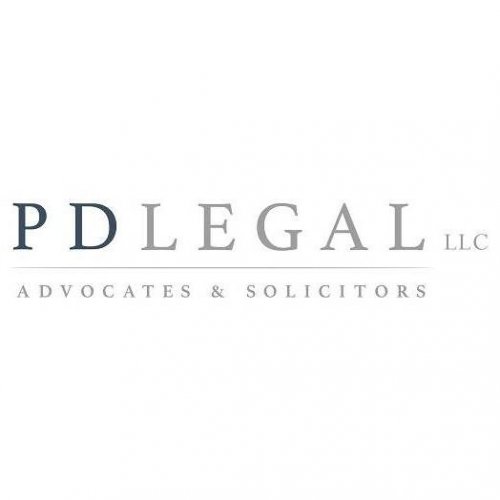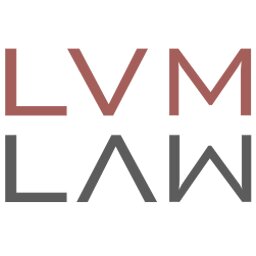Best Fintech Lawyers in Singapore
Share your needs with us, get contacted by law firms.
Free. Takes 2 min.
Or refine your search by selecting a city:
List of the best lawyers in Singapore
About Fintech Law in Singapore
Fintech, short for financial technology, refers to the integration of technology into offerings by financial services organizations, resulting in innovative products and services that disrupt traditional financial systems. Singapore has emerged as a global Fintech hub due to its robust regulatory framework, strong financial infrastructure, and government support aimed at fostering innovation. The Monetary Authority of Singapore (MAS) plays a central role in formulating Fintech regulations to balance promoting innovation and ensuring consumer protection and financial stability.
Why You May Need a Lawyer
The Fintech industry in Singapore is governed by a complex web of regulations aimed at ensuring consumer protection, data privacy, and financial stability. Here are common situations where you might seek legal advice:
- Regulatory Compliance: Understanding and adhering to the MAS regulations is crucial for any Fintech operation.
- Licensing Requirements: Acquiring necessary licenses for operations such as payments, loans, or digital tokens.
- Intellectual Property: Protecting innovations, technology, and processes through patents, trademarks, and copyrights.
- Data Privacy: Ensuring compliance with data protection laws, such as the Personal Data Protection Act (PDPA).
- Dispute Resolution: Navigating disputes that may arise with stakeholders, customers, or partners.
Local Laws Overview
Several key aspects of Singaporean law are particularly relevant to Fintech companies:
- Monetary Authority of Singapore (MAS): MAS is the central bank and essential regulatory authority for Fintech businesses in Singapore, covering licensing, compliance, and supervisory requirements.
- Payment Services Act (PSA): This act regulates payment systems, and it is critical for businesses engaging in payment activities or money transfers.
- Securities and Futures Act (SFA): Provides the framework for dealing with securities, investment funds, and derivatives, essential for Fintech startups dealing in these services.
- Personal Data Protection Act (PDPA): Establishes regulations around data privacy, impacting how Fintech firms collect, use, and disclose personal data.
Frequently Asked Questions
What is the regulatory environment for Fintech in Singapore?
The regulatory environment is supportive and comprehensive, with the MAS leading initiatives through frameworks and sandboxes to balance innovation and regulation.
Do I need a license to operate a Fintech business in Singapore?
Yes, most Fintech operations require licenses under laws like the Payment Services Act, and it's essential to understand specific licensing needs for your services.
How can I ensure compliance with Fintech regulations?
Engage in thorough compliance checks and consult with legal experts specializing in Fintech law to navigate Singapore's regulatory landscape effectively.
What steps should I take to protect my Fintech innovation?
Seek intellectual property protection through patents, trademarks, and copyrights. Legal advice can assist in navigating this process.
Is there support for Fintech startups in Singapore?
Yes, numerous government grants, accelerator programs, and industry collaborations are available to support Fintech startups.
What is a regulatory sandbox, and how can it benefit my business?
A regulatory sandbox allows firms to test innovative products in a controlled environment under MAS supervision, reducing regulatory uncertainty.
How are consumer data privacy concerns addressed in Fintech?
The PDPA guides Fintech firms on handling personal data, emphasizing the need for robust data protection strategies.
What are the consequences of non-compliance with Fintech regulations?
Non-compliance can lead to penalties, fines, or revocation of licenses, which may severely impact your business operations.
How are disputes typically resolved in the Fintech sector?
Disputes can be settled through negotiation, mediation, or arbitration. Understanding legal rights and obligations is crucial here.
Are digital currencies and tokens regulated in Singapore?
Yes, digital currencies and tokens fall under regulations of the SFA and MAS guidelines, requiring specific compliance measures.
Additional Resources
Consider the following resources for further guidance on Fintech legal matters in Singapore:
- Monetary Authority of Singapore (MAS): Official body for regulatory instructions and advice.
- Singapore Fintech Association (SFA): A platform promoting the growth and development of the Fintech industry.
- Personal Data Protection Commission (PDPC): For details on data protection laws impacting Fintech firms.
- Legal Firms Specializing in Fintech: Engage firms that specialize in technology and financial services law for tailored advice.
Next Steps
If you need legal assistance in Fintech, consider these steps:
- Identify specific legal issues or questions you have regarding your Fintech business.
- Research and seek out law firms or legal professionals with expertise in Fintech and related regulations in Singapore.
- Gather necessary documentation and business details to provide a clear picture of your legal needs.
- Consult with legal experts to understand your obligations, rights, and the best strategies for regulatory compliance and business protection.
Lawzana helps you find the best lawyers and law firms in Singapore through a curated and pre-screened list of qualified legal professionals. Our platform offers rankings and detailed profiles of attorneys and law firms, allowing you to compare based on practice areas, including Fintech, experience, and client feedback.
Each profile includes a description of the firm's areas of practice, client reviews, team members and partners, year of establishment, spoken languages, office locations, contact information, social media presence, and any published articles or resources. Most firms on our platform speak English and are experienced in both local and international legal matters.
Get a quote from top-rated law firms in Singapore — quickly, securely, and without unnecessary hassle.
Disclaimer:
The information provided on this page is for general informational purposes only and does not constitute legal advice. While we strive to ensure the accuracy and relevance of the content, legal information may change over time, and interpretations of the law can vary. You should always consult with a qualified legal professional for advice specific to your situation.
We disclaim all liability for actions taken or not taken based on the content of this page. If you believe any information is incorrect or outdated, please contact us, and we will review and update it where appropriate.
Browse fintech law firms by city in Singapore
Refine your search by selecting a city.














